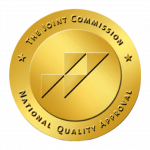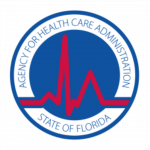The Holiday season is an exciting time for many. This is the time of year family and friends come together to celebrate holiday traditions, enjoy each other’s company while enjoying great food and drinks. However, even in the midst of all the excitement, the holidays can be hard. For someone who is experiencing Christmas in recovery, especially new to recovery, this time of year can be difficult.
The risk of relapse triggers is high during this time of year, and unfortunately inevitable. From holiday parties to Christmas toasts, if you are in recovery from alcohol addiction avoiding these situations can seem like the only answer. It is important to know your triggers and limits and prepare yourself to help minimize the risk of relapse. It is very possible to enjoy Christmas in recovery and stay sober throughout the holiday season.
Common Holiday Triggers
During the holiday season, there are many triggers that are hard to avoid. All the celebrations and preparations for the holiday time can be daunting for anyone. However, for someone who is spending their first or second Christmas in recovery, these stressors are intensified. Becoming aware of your potential triggers and preparing to experience these situations is one of the first steps for life after addiction treatment.
Below are a few of the triggers that you may need to overcome this holiday season.
Changes to Your Routine
Creating a healthy routine is a common step to the recovery process. This is because structure helps people stay focused on their goals. During the holiday season, many are getting time off of work and school, families are traveling to visit loved ones, preparation has begun full force, and any structure or routine that once was, has completely shifted.
It is easy to allow your exercise routine to slip up, begin overindulging in junk food because, hey, it’s the holidays. Family parties or holiday celebrations can overlap with your AA or NA meetings which should be a priority. However, the pressure of spending time with your loved ones may deter you. All of these changes in your routine can put serious stress on your recovery.
Holiday Parties
What is a holiday party without an endless amount of alcohol? This is one of the biggest triggers for someone in recovery during this season. Being around a plethora of alcohol and watching our family and friends partaking in drinking can be extremely overwhelming. This is especially true for those who are new to recovery.
Family Stress
The holiday season is full of stressors but one of the main culprits is the stress placed on you by your family. Whether consciously or subconsciously, pleasing your family after addiction treatment can take over your time. This is because many may have strained relationships prior to treatment and spending a significant amount of time is important to mend these relationships.
However, this pressure to please your family puts a huge strain on you and can even cause symptoms of depression and anxiety. Seeing your family all at once at the beginning of your new recovery journey can bring on feelings of guilt and shame. The shame of the life you once lived and guilt for hurting your family through your addiction. These negative feelings can send anyone down a slippery slope and relapse can begin to threaten your sobriety.
Avoiding Holiday Relapse
Avoiding the potential threat of holiday relapse can seem nearly impossible, but there are ways to prepare for these triggers. Below are some tips to prepare you for triggers you may encounter during the holidays.
Have a Pre-Planned Response
For those who are in recovery from alcohol addiction, the holidays can especially be difficult. Not only are you surrounded by your biggest trigger, but you are surrounded by your loved ones enjoying that very trigger. Furthermore, not everyone may know you are in recovery and can offer you a drink at any moment. It is important to prepare planned responses to help you stay strong in situations like this that may arise.
“No, thank you” is a normal response when wanting to avoid taking a drink from someone. Although this may seem brainless, this response sometimes isn’t enough without having to further explain. Alternative responses that can help you avoid over-explaining are:
- “I’m not drinking tonight”
- “Yes, I’ll have a water or coke”
- “No, I have an early day tomorrow”
- Try keeping a non-alcoholic drink with you during the party
- “I’m the designative driver tonight”
Remember, you should never feel ashamed of your sobriety, and if you choose to share with others that is your decision. However, if you choose to try and avoid explaining, these are some easy response ideas to get you out of a sticky situation.
Bring a Friend
If you are hesitant about attending a holiday party, you are never alone. Invite a friend who can relate to your journey. Bringing a sober friend will help you feel less stressed, as well as supported when having to deal with relapse triggers. Invite, or reach out to your sponsor and discuss your concerns prior to these celebrations. Your sponsor is there to support you and provide you with the tools to help you overcome these situations with success.
Being surrounded by people who are in the same shoes, or once were, can better understand what you’re going through and help hold you accountable.
Create an Exit Strategy
You may not be able to predict how a situation will unfold but preparing an exit strategy beforehand will help no matter the outcome. Whether making up an excuse that you have an early morning or creating a plan with a friend or sponsor to call you when you say the word. It is a great backup plan to have even if you don’t need it.
Stay Sober During Christmas in Recovery
The holiday season can be a challenge, but it doesn’t have to end in relapse. If you are struggling with the thought of staying sober during the holidays reach out for support from trusted treatment centers like the Harm Reduction Center in South Florida. HARC provides highly individualized services to each client and provides resources to help those of us struggling with addiction. You are not alone and the Harm Reduction Center team is here to help.














